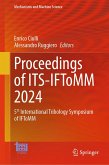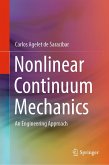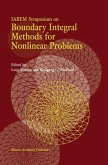The book is primarily intended for doctoral students of applied mathematics, mechanics, engineering and physics with a strong interest in the theoretical modelling, numerical simulation and experimental characterization of contact problems in technology. It will also benefit researchers in the above mentioned and neighbouring fields working in academia or at private research and development centres who are interested ina concise yet comprehensive overview of contact mechanics, from its fundamental mathematical background, to the computational methods and the experimental techniques currently available for the solution of contact problems.
Dieser Download kann aus rechtlichen Gründen nur mit Rechnungsadresse in A, B, BG, CY, CZ, D, DK, EW, E, FIN, F, GR, HR, H, IRL, I, LT, L, LR, M, NL, PL, P, R, S, SLO, SK ausgeliefert werden.









